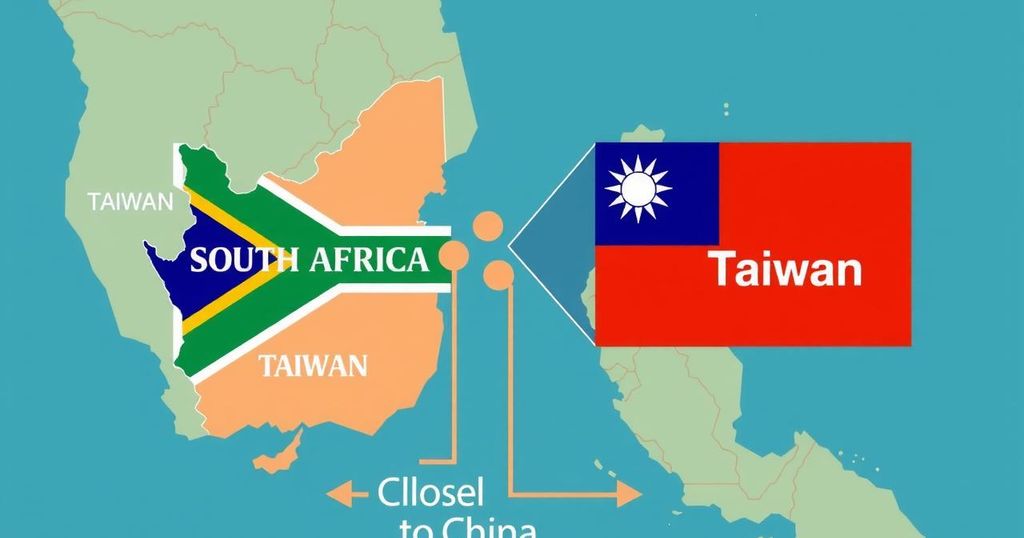South Africa has downgraded its diplomatic ties with Taiwan, renaming its representative office and requiring its relocation. This shift reflects growing ties with China amidst diplomatic tensions with the U.S. Taiwan views the changes as pressure from Beijing, which seeks to assert its claim over Taiwan. Consequently, South Africa and Taiwan’s relations are increasingly strained, raising issues about China’s expanding influence in Africa.
South Africa has downgraded its diplomatic ties with Taiwan, opting to shift closer to China amid rising pressures. Recently, Taiwan’s representative office in South Africa was rebranded from the “Taipei Liaison Office” to the “Taipei Commercial Office,” which Taiwan’s foreign ministry views as an attempt by South Africa to appease Beijing. The change reflects South Africa’s intentions of adhering to a “One-China policy” following a diplomatic dispute with the United States during the Trump administration.
By the end of March, South Africa mandated that Taiwan relocate its representative office from Pretoria to Johannesburg, effectively classifying it as a mere trade office. Such demands signal China’s increased influence, with Taiwan asserting that this pressure illustrates Beijing’s ongoing suppression of its sovereignty. South Africa severed formal diplomatic relations with Taiwan in 1997 but permitted its presence through a liaison office.
Taiwan currently maintains formal diplomatic relations with only 12 countries, with Eswatini as its sole ally in Africa. The namesake change from office to trade office was affirmed by South Africa to symbolize the non-political and non-diplomatic nature of relations with Taiwan. In response, Taiwan’s Foreign Minister Lin Chia-long hinted at potential retaliatory measures, including the closure of South Africa’s liaison office in Taiwan.
China has firmly positioned itself as South Africa’s largest trading partner, deepening ties particularly in renewable energy. This partnership is underscored by both nations’ membership in the BRICS bloc, fostering cooperative opportunities. The Chinese Foreign Ministry has welcomed South Africa’s decision, reinforcing the notion that supporting Beijing is a reflection of strong bilateral relations.
The diplomatic tension escalated during the Trump administration when South Africa faced criticism. President Trump’s policies sharply criticized the South African government, alleging it pursued divisive domestic policies and unfair land claims against white farmers. Expulsions and heightened diplomatic hostility marked South Africa’s relationships with the U.S., fueling its pivot towards China.
In conclusion, South Africa’s recent reclassification of Taiwan’s representative office marks a significant shift in its foreign policy, aligning more closely with China at the expense of its relations with Taiwan. As diplomatic ties continue to evolve, the impact of China’s influence on African politics and Taiwan’s diminishing international presence remains a critical point of concern for observers of global diplomacy.
Original Source: www.independent.co.uk




